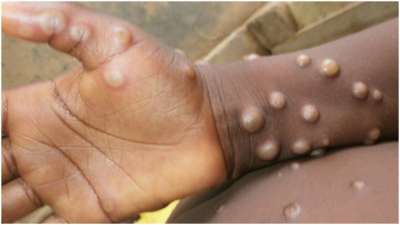Monday: Homosexuals most at risk from monkeypox, WHO advices to avoid polygamy
By Lokmat English Desk | Published: July 28, 2022 04:52 PM2022-07-28T16:52:16+5:302022-07-28T16:56:56+5:30
Increasing outbreaks of monkeypox worldwide have raised concerns. Another reason behind monkeypox infection has now been revealed. Men who ...

Monday: Homosexuals most at risk from monkeypox, WHO advices to avoid polygamy
Increasing outbreaks of monkeypox worldwide have raised concerns. Another reason behind monkeypox infection has now been revealed. Men who are homosexual and have sex with more than one person are at increased risk of monkeypox. To avoid exposure to monkeypox, avoid sexual relations with more than one person, advises the World Health Organization.
According to research published in the New England Journal of Medicine, monkeypox is contracted through sexual activity in 95 percent of cases. And 98 percent of those infected were gay or bisexual men. A total of 528 infected people have been studied in this research.
Recently, the WHO has also declared monkeypox epidemic as a global health emergency. Now WHO advises to limit the number of sexual partners. The WHO advises that 'men who are at risk of monkeypox should consider limiting the number of sexual partners for a period of time. More than 18 thousand cases of monkeypox have been reported in 78 countries. About 70 percent of these cases are in Europe. Most infections have occurred in homosexual men. There are currently four cases of monkeypox in India. Out of these three are from Kerala and one patient is from Delhi. In order to prevent monkeypox outbreaks, along with public awareness, systems also need to be on alert mode.
What are the symptoms of monkeypox?
Symptoms of monkeypox are usually fever, headache, rash for up to three weeks, sore throat, cough and blisters. The blisters usually start within one to three days of the onset of fever, last about two to four weeks, and are often painful until treatment continues. They also itch. Monkeypox virus particularly affects the palms and soles.